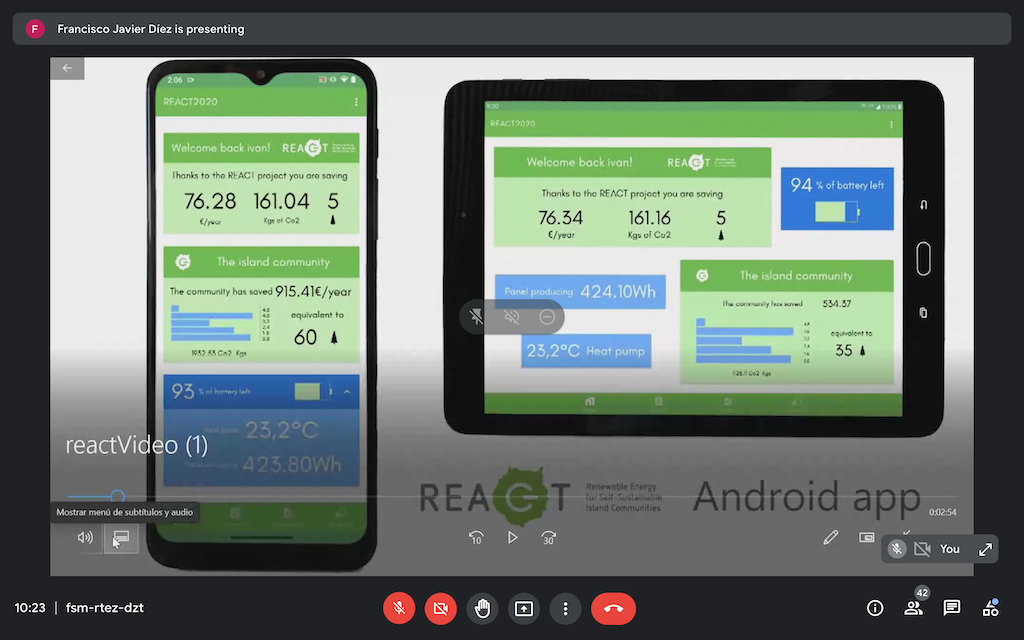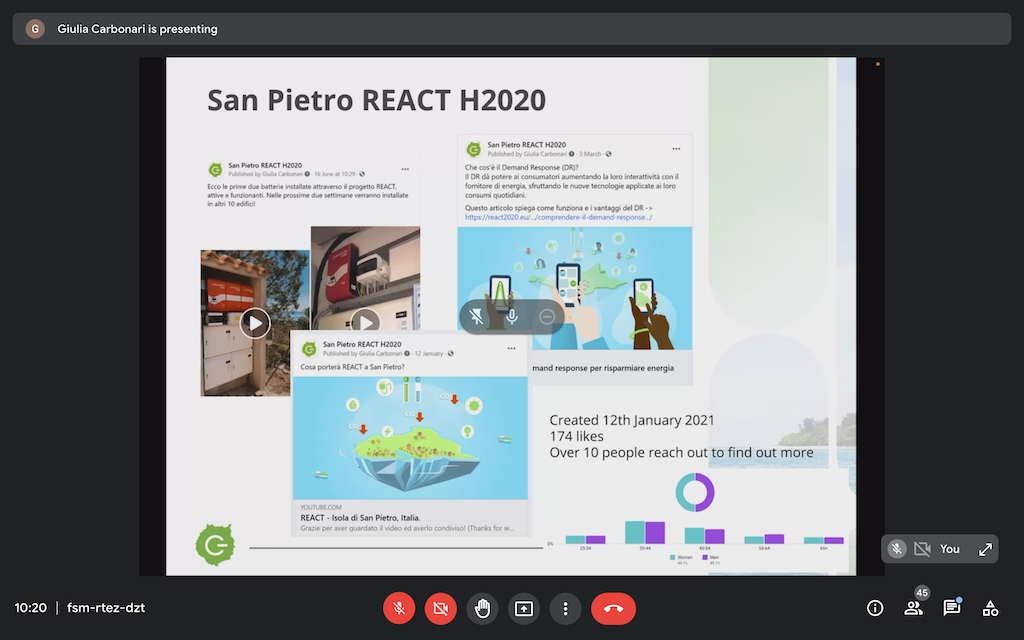On the 22nd and 23rd June the REACT consortium held its 5th Virtual General Assembly organized in two days intense half-day sessions. The meeting gathered all 24 partners online in order to review progress and discuss new steps regarding the implementation of the technical solutions as well as other important social issues. Work package leaders were able to present the progress made with the core technologies, demonstration activities, exploitation, communication, and coordination work packages.
The event was structured so we could see first what were the advances on the pilot islands, individually, and then the technical and social advances. During the first day the session started with project coordinator Veolia welcoming us and reviewing briefly the status of the project management, then the islands responsible partners updated us on their advances and finally the technical and more social aspects were presented by those involved partners.
The first group of installations for our pilot site at Carloforte, Sardinia had already started after some expected problems due to the pandemic. These storage batteries are now in several public and private buildings that have joined the project initiative. We were also presented with advances in solar panels and batteries been installed in La Graciosa and advances made on installations in Aran. Great work and great progress that can be seen a materialization of the energy self-sufficiency concept in the islands thanks to our partners Midac Batteries SpA, Mitsubishi Electric Europe BV and R2M Solution.

Technical presentations regarding the advances on the platform architecture, the communication middleware and interfaces, the semantic grid and its operability were presented by different partners. A very nice presentation of the REACT app ready for a smartphone and tablet was also made by Tekniker, the prototype has been evaluated for usability and it looks really neat and procure all necessary functionalities and energy consumption information.
In the follower island of Majorca where a study was performed. Interviews to a group belonging to the general population were performed and preliminary analysis of the results showed that most respondents did not know much about Demand Response and even less about Energy Communities. Obviously, this spread lack of knowledge is smothering that must be tackled first, as someone who ignores a fact can hardly make decisions about it.
To manage to get people to acquire knowledge we need for them to be engaged, interested in the area we want to promote or support. Questions arise rewarding engagement: Can social media be efficient channels to deliver the desired information? What are the benefits of using social media to engage people in experiments and projects? Is there any other means to get people interested that can be use massively and with lesser efforts?
The follower islands of Gotland, Reunión and Lesvos are also performing a research into the perception of residents on Demand Response and energy management. Involved partners in these activities are Uppsala University, Université de La Réunion and University of the Aegean. We hope to have results on this research by the end of the summer. We will keep you informed.
The meeting wrapped up with high hopes that next time we might meet again in person and with a clear view of the next steps that will be taken by all partners during the next 6 months.
We continue our efforts towards energy sustainability in the island communities!


